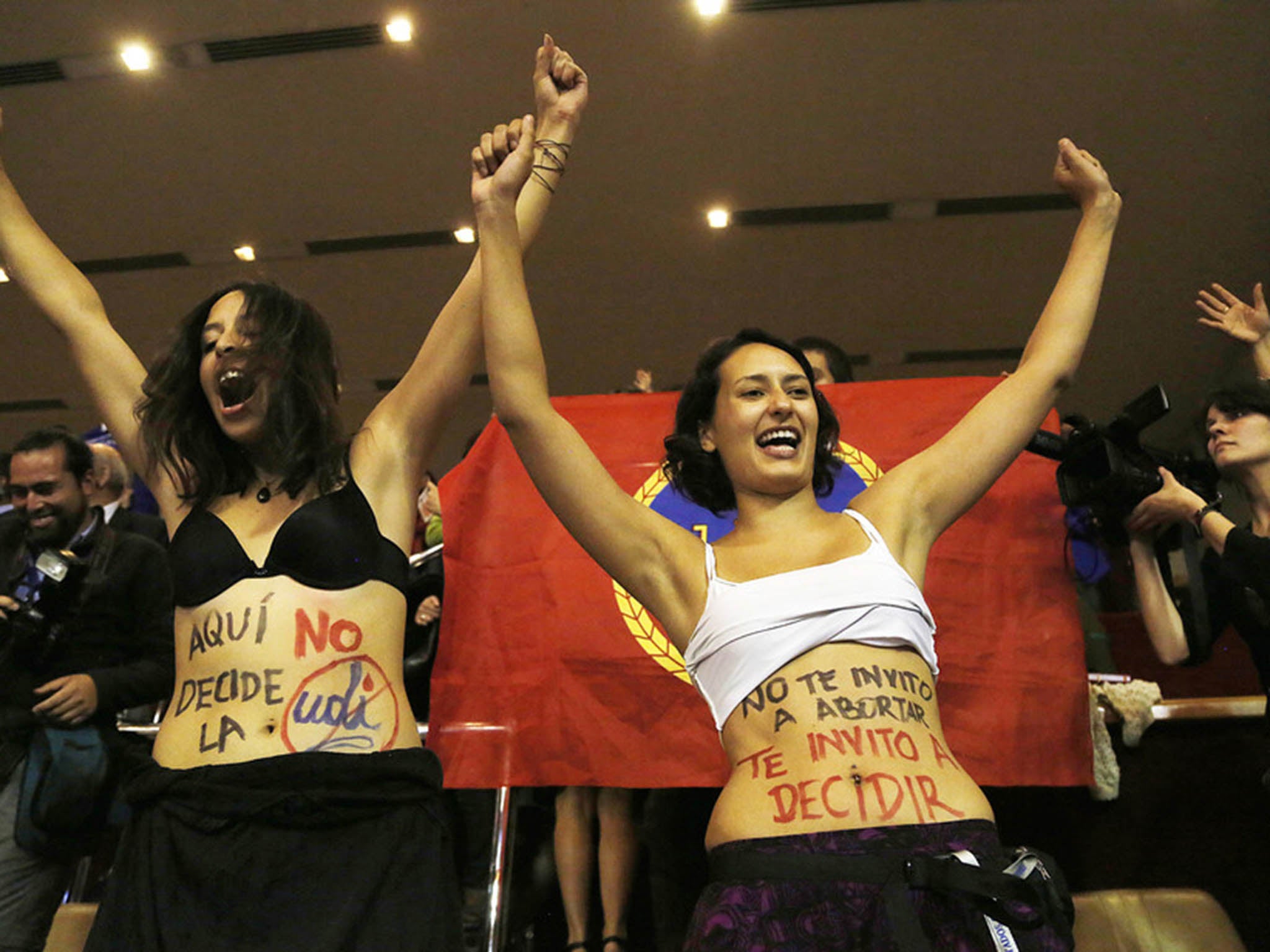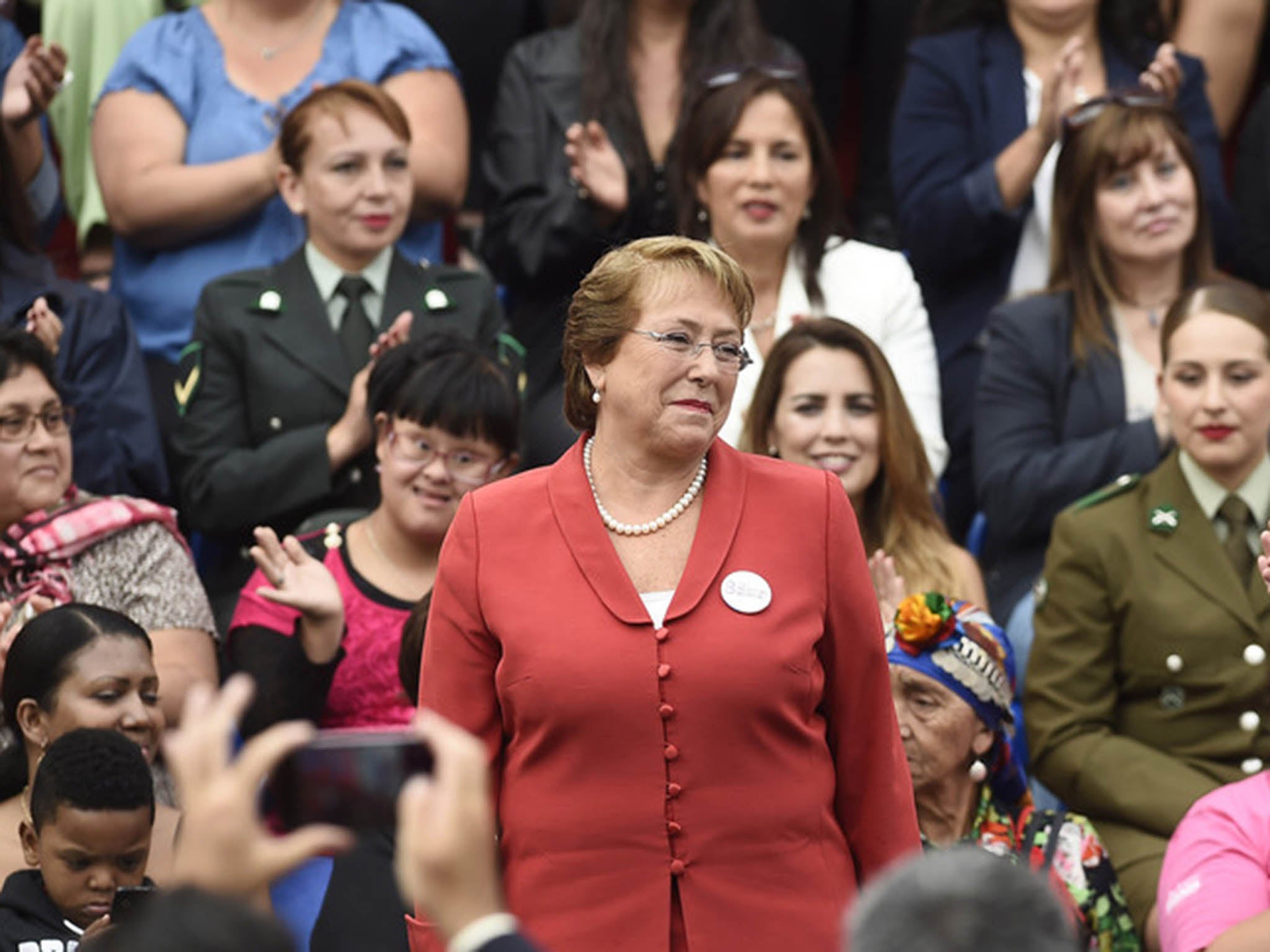Chile: the long road to abortion reform
After a fierce debate, one of the most restrictive reproductive laws in the world has been eased

Your support helps us to tell the story
From reproductive rights to climate change to Big Tech, The Independent is on the ground when the story is developing. Whether it's investigating the financials of Elon Musk's pro-Trump PAC or producing our latest documentary, 'The A Word', which shines a light on the American women fighting for reproductive rights, we know how important it is to parse out the facts from the messaging.
At such a critical moment in US history, we need reporters on the ground. Your donation allows us to keep sending journalists to speak to both sides of the story.
The Independent is trusted by Americans across the entire political spectrum. And unlike many other quality news outlets, we choose not to lock Americans out of our reporting and analysis with paywalls. We believe quality journalism should be available to everyone, paid for by those who can afford it.
Your support makes all the difference.Chile had one of the most restrictive abortion policies in the entire world. After years of campaigning, Chile’s president, Michelle Bachelet, has finally pushed through a bill that will allow the termination of a pregnancy in three cases – when the woman’s life is in danger, when a foetus is unviable, or in cases of rape.
Judges in the constitutional court ruled in favour by six to four in a vote that reflected the wider mood on the matter. Among the general public, 70 per cent supported the bill.
Debate has been heated. A viral video campaign showed women how to induce an “accidental” abortion by walking into moving traffic. The point here was that a terrible accident of this kind is the only way to legally end an unwanted pregnancy.
Certain key cases have been used to show the injustice of restrictive abortion policies. The most famous has been the 11-year-old girl raped by her stepfather who was forced to carry to term.
Chile was once a leader in abortion liberalisation. Procedures had been legal in some circumstances since 1931. However, in 1989, the infamous dictator Augusto Pinochet imposed draconian abortion laws, making the practice illegal in every circumstance.
This did not stop the practice, but it did make abortions much more dangerous. According to Human Rights Watch, around 35 per cent of pregnancies in Chile end in abortions. That’s around 160,000 abortions per year – 64,000 of them by girls under 18. In Latin America and the Caribbean the unsafe abortion mortality ratio is 10 times higher than in Europe. So, regardless of moral arguments, the fact is that women have been dying and will continue to die from unsafe abortions.
In my research, I have found that wealthier women do have a few options when they need an abortion. They can pay a doctor in Chile within an elite network of clandestine providers or they can travel abroad for a legal abortion.

Poorer women are not so lucky. They can seek a cheaper illegal provider within the country or obtain medication from the internet. Chile’s geography, long and narrow, with the Andes separating it from Argentina, makes leaving the country on a budget very difficult. There is only one place where women can leave for another country quickly and cheaply – the northern border with Peru.
There are no statistics for how many women travel from Chile to Peru for abortions but during my fieldwork there I spoke to healthcare practitioners who all believed it to be common. I managed to speak to one young woman who travelled across the border when she accidentally fell pregnant. She saw Peru as an opportunity to find the future she wanted but was frightened all the same, knowing that she could face up to five years in prison if she was caught.
The problem is that clinics in Peru can be run either by licensed physicians who specialise in abortions or by people without medical training. Women can’t be sure whether the procedure will be undertaken by a professional or a charlatan.
The relaxation of the law in Chile will undoubtedly change the lives of women who previously had no right to an abortion. However, the vast majority of women who fall pregnant but do not want a baby remain unaffected. As my interviewee who had an abortion in Peru told me: “There is no right to an abortion.” Her situation would not fall under the “three cases” and so she did not have and still would not have the right to legally choose what happened to her body. Chileans still have not achieved full reproductive justice.
Campaigners have been celebrating the bill, claiming it as a human rights milestone, but opposition is fierce. As a socially conservative, largely Catholic country, religious and pro-life groups have been opposing the bill at every stage. Bachelet may have made history but the fight for full reproductive rights is far from finished.
Cordelia Freeman is a teaching associate in human geography, University of Nottingham. This article first appeared on The Conversation (theconversation.com)
Join our commenting forum
Join thought-provoking conversations, follow other Independent readers and see their replies
Comments